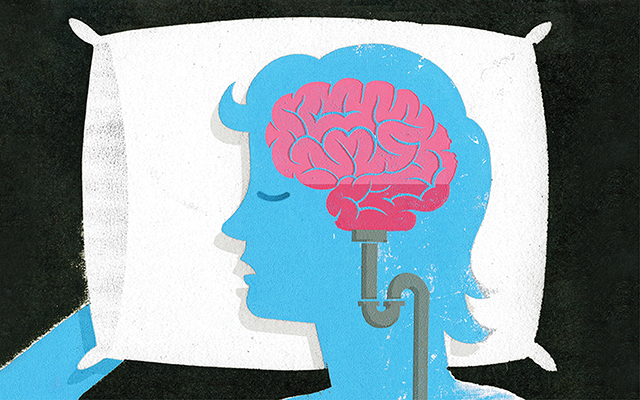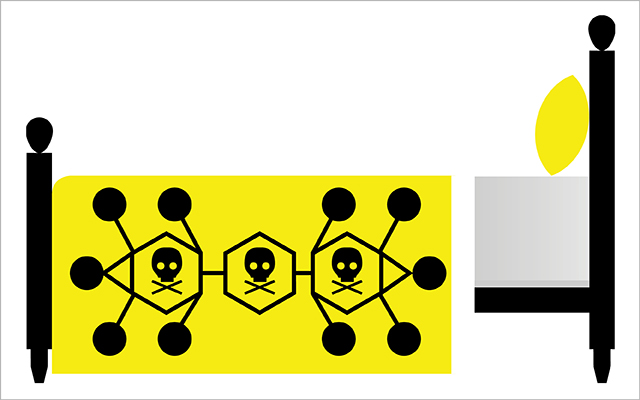Sleep is essential to our health. A deficit can compromise our immune systems, cause inflammation, lead to memory loss and weight gain, hamper reflexes and decision-making skills, and increase the risk of chronic diseases like cancer and type 2 diabetes.
Until now, though, the exact mechanisms of how sleep helps us were more or less a mystery.
While we slumber, report researchers at the University of Rochester Medical Center in the journal Science, our brains flush out toxins that build up when we’re awake — allowing us to clear our heads.
“This study [on mice] shows that the brain has different functional states when asleep and when awake,” says study lead author Maiken Nedergaard, MD, DMSc. “In fact, the restorative nature of sleep appears to be the result of the active clearance of the byproducts of neural activity that accumulate during wakefulness.”
The glymphatic system in our brains serves as plumbing: It includes a network of passageways between the brain’s cells that controls the flow of the clear liquid surrounding the brain and spinal cord, known as cerebrospinal fluid.
These passageways undergo dramatic changes between sleep and waking moments. Specifically, the study showed, sleep increases the space where cerebrospinal fluid circulates by 60 percent, allowing room for unnecessary byproducts to be flushed from the brain.
For example, almost every neurodegenerative disease — including Alzheimer’s — is associated with the buildup of toxic proteins in the brain. Researchers suspect that it is the accumulation of these proteins that can kill neurons and lead to dementia. Sleep appears to support the brain’s innate ability to identify and dump these damaging proteins.
“Sleep changes the cellular structure of the brain,” Nedergaard says. “It appears to be in a completely different state.”




This Post Has 0 Comments